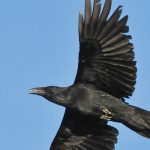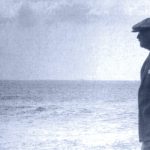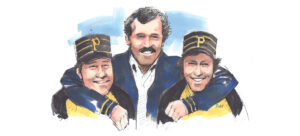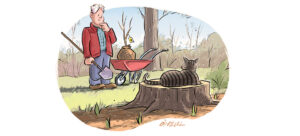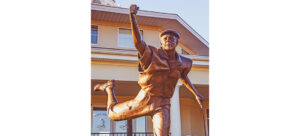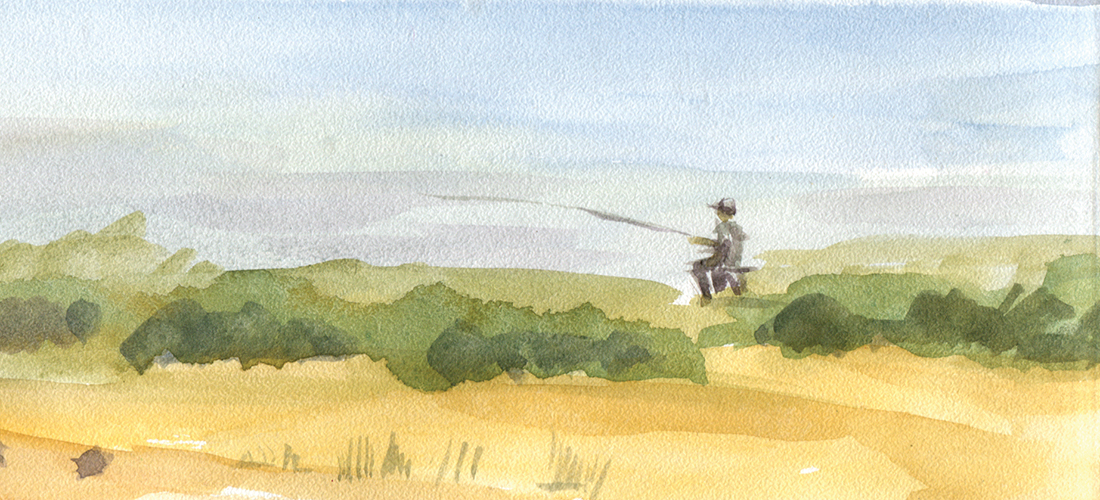
Testing a new outfit in an old spot
By Tom Bryant
. . . A Florida conservationist is a fellow who bought his waterfront property last week, and wants to make room for two or three friends and then shut the door forever. And meanwhile the people who knew what it was like twenty years ago are an ever-dwindling minority, a voice too faint to be heard.
— The Empty Copper Sea, by John D. MacDonald
Wind was blowing out of the east at about 20 knots. That, along with a low tide, had all but emptied Chokoloskee Bay of water except in the cuts and passes. Too windy to take out the canoe, and I was determined not to make a mistake like I did the day before, when I got caught on a falling tide with wind in my face. When I made it back to the dock, it felt as if I had paddled 5 miles, towing a barge. I don’t mind a little exercise, but that was too much.
Chokoloskee Park and Marina sits on about 10 or 15 acres, all of it packed elbow-to-elbow with campers like us and mobile homes made permanent in the back. We had the site up the hill from the launching ramp of the marina, and I was sitting outside our little Airstream, keeping out of the wind. Montana Bill, a long-timer, walked by on the way to the dock, looked over at me and said, “Tom, you get to say ‘hey’ to everybody right here.”
I laughed. “You’re right, Bill, if I get tired of folks I just go inside.” The site was narrow but a little bigger than the rest on the front row. This was our annual winter visit to Florida. We had budgeted two weeks for the island and we were just getting into a routine. The weather had been windy but warm, and the snowbirds who had been there a lot longer said we were blessed with the wind because the mosquitoes and no-see-ums had been murder before the breeze cranked up and blew them away.
Not wanting to take the canoe out, I ventured out on the dock with a new spinning outfit I received for Christmas. It was a combo from L.L. Bean, spinning rod and reel and fly rod and reel. I was excited about trying it out. The dock runs beside the launching ramp to a fish-cleaning station, hangs a right and goes in a semicircle back toward the marina, creating a space for boats to come into the slips available and tie up for the evening or for any length of stay. It’s a pretty efficient little harbor just right for small boats. I, on the other hand, parked my canoe beside the Airstream.
There are a couple of benches placed strategically along the dock walkway where folks could rest and watch wildlife or maybe sunsets, which are magnificent over the Ten Thousand Islands. I noticed an old fellow sitting at the bench closest to the cleaning station, so I moved down toward the north end of the dock so I wouldn’t accidentally hook him if the wind blew the lure his way. He was a weathered old guy, wearing a cut-off sweatshirt, denim shorts, and a canvas hat that looked as if it had done duty in the big war, World War I, I mean. He had a pipe that he would repack with tobacco from time to time. I hadn’t smelled a pipe smoker in many years. The wind blew me a whiff every now and then, and it brought back memories of the days when I used to smoke a pipe before I gave up tobacco entirely. To me, it wasn’t unpleasant the way cigarettes and cigars are.
I tossed the light lure out as far as I could, more just learning the touch of the spinning outfit than hoping to catch something. A stiff breeze at my back helped, but I still couldn’t reach deep water like I wanted. I noticed the old guy had moved to the bench nearer to where I was.
“You’re gonna have to put more weight on that leader if you want to get where the fish are,” he said, chuckling.
“You’re right, but I’m more interested in how this little thing works than actually catching a fish. It’s new to me and I’m impressed with it so far.”
“I bet it would be fun with a 3- or 4-pound trout on it.”
“Mister, I haven’t caught a 3- or 4-pound trout in quite a while. I don’t know if they grow ’em that big anymore.”
“It would break your heart to see the fish pulled out of these waters 20 years ago,” he said. “A 3-pound trout was common, and pompano and snook and red fish and sheepshead. You name it, the fishing was so good you had to hide your bait or they would jump in the boat.”
I laughed and said, “I’ve heard that one before, old-timer. Believe it or not, I used to fish these waters with my granddad over 60 years ago, and I can relate to what you’re saying.”
“Well, I’ve got some years on you, and I can remember that before that causeway and bridge were built, nobody fished off Chokoloskee Island except the locals. Most everybody put in at Everglades City, what few came here to fish. The rich folks fished out of the Rod and Gun Club. Met Hemingway there one time. He gave me a dollar to haul in his suitcase.”
He was looking to the north where the causeway crossed the bay to the island. The folks from the highway department were hard at work replacing the bridge located in the middle, and they had a way to go before they finished. They were working one lane at a time and had an automatic light controlling traffic.
“Yep,” he said, “before they dug the ditch to build that road and bridge, the flow of the bay coming out of the Glades was a lot better. Some folks say the reason the fishing is not as good as it used to be is because of that cotton-picking’ road.”
He knocked tobacco ash out of his pipe, refilled it, and lit it again. He stood, shuffling a bit to get his feet working. “Well, anyhow, ain’t nothing the way it used to be. Good luck, fellow. I hope you catch some fish. My daughter is supposed to pick me up in a few minutes. She brings me over here every now and then so I can check out the fishing. Maybe I’ll see you again.”
We said our goodbyes, and I watched as he slowly made his way around the dock to the parking lot. He’s right, I thought. Times have changed, not always for the better.
In the distance I could hear the pounding as the big diesel pile driver worked on the bridge. PS
Tom Bryant, a Southern Pines resident, is a lifelong outdoorsman and PineStraw’s Sporting Life columnist.

